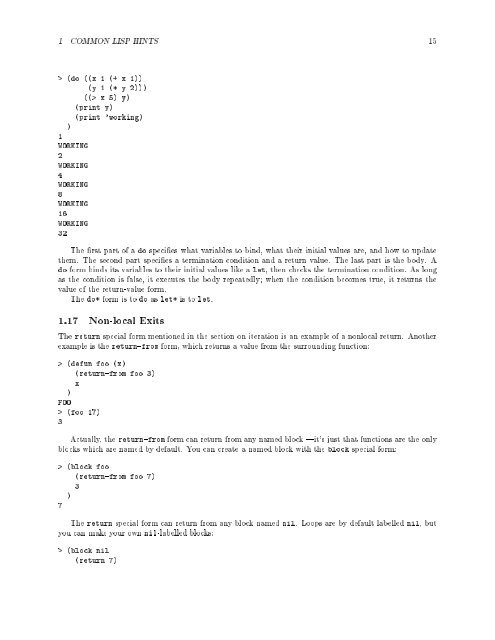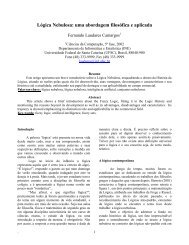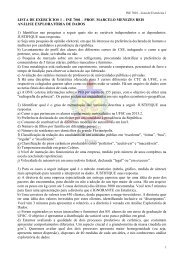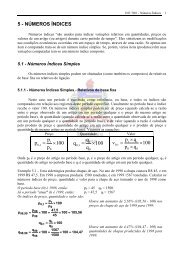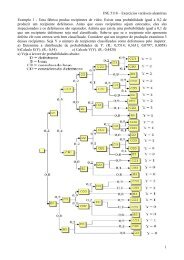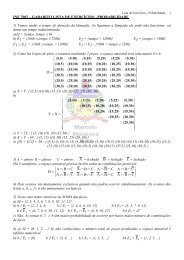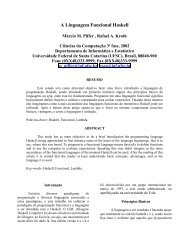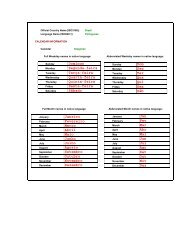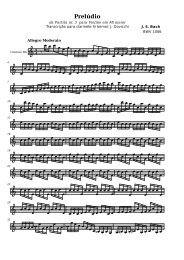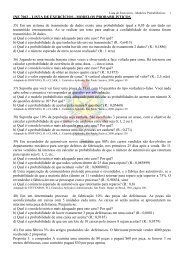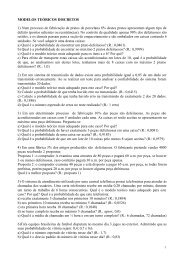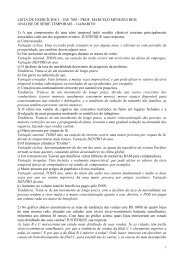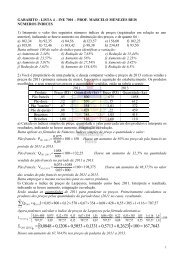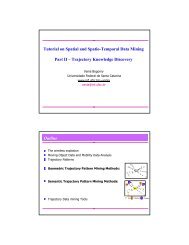common lisp hints
common lisp hints
common lisp hints
Create successful ePaper yourself
Turn your PDF publications into a flip-book with our unique Google optimized e-Paper software.
1 COMMON LISP HINTS 15> (do ((x 1 (+ x 1))(y 1 (* y 2)))((> x 5) y)(print y)(print 'working))1WORKING2WORKING4WORKING8WORKING16WORKING32The rst part of a do species what variables to bind, what their initial values are, and how toupdatethem. The second part species a termination condition and a return value. The last part is the body. Ado form binds its variables to their initial values like alet, thenchecks the termination condition. As longas the condition is false, it executes the body repeatedly when the condition becomes true, it returns thevalue of the return-value form.The do* form is to do as let* is to let.1.17 Non-local ExitsThe return special form mentioned in the section on iteration is an example of a nonlocal return. Anotherexample is the return-from form, which returns a value from the surrounding function:> (defun foo (x)(return-from foo 3)x)FOO> (foo 17)3Actually, the return-from form can return from any named block |it's just that functions are the onlyblocks which are named by default. You can create a named block with the block special form:> (block foo(return-from foo 7)3)7The return special form can return from any blocknamednil. Loops are by default labelled nil, butyou can make your own nil-labelled blocks:> (block nil(return 7)


